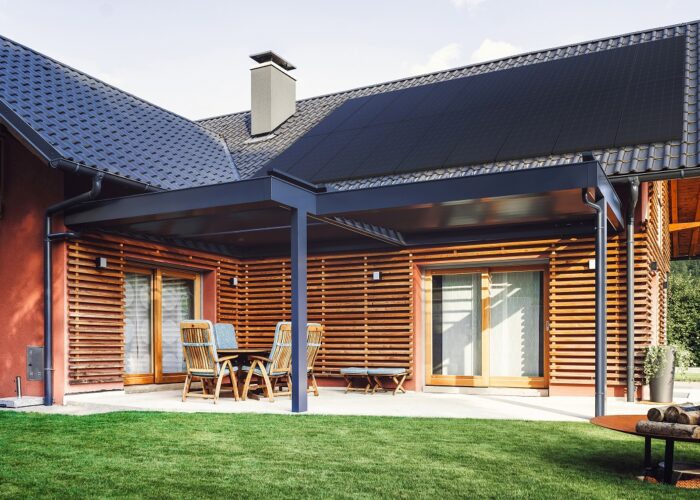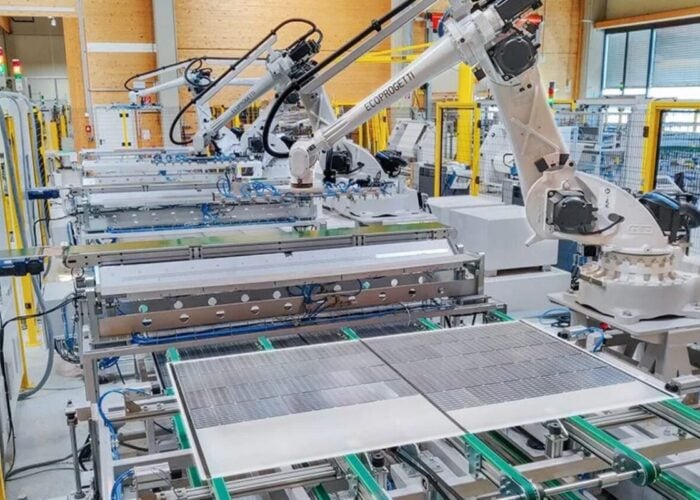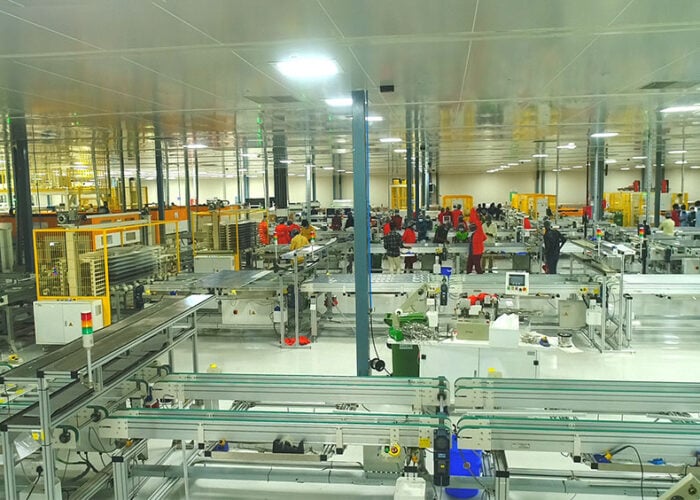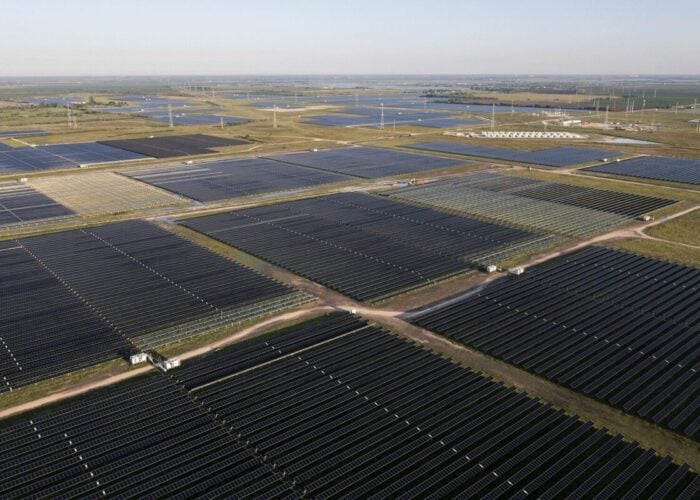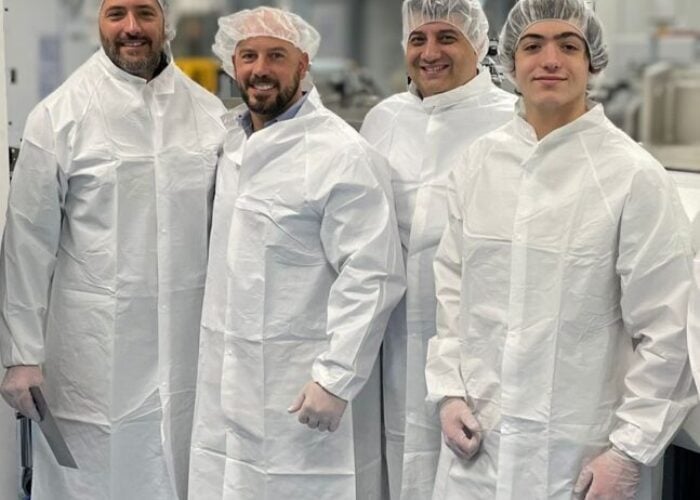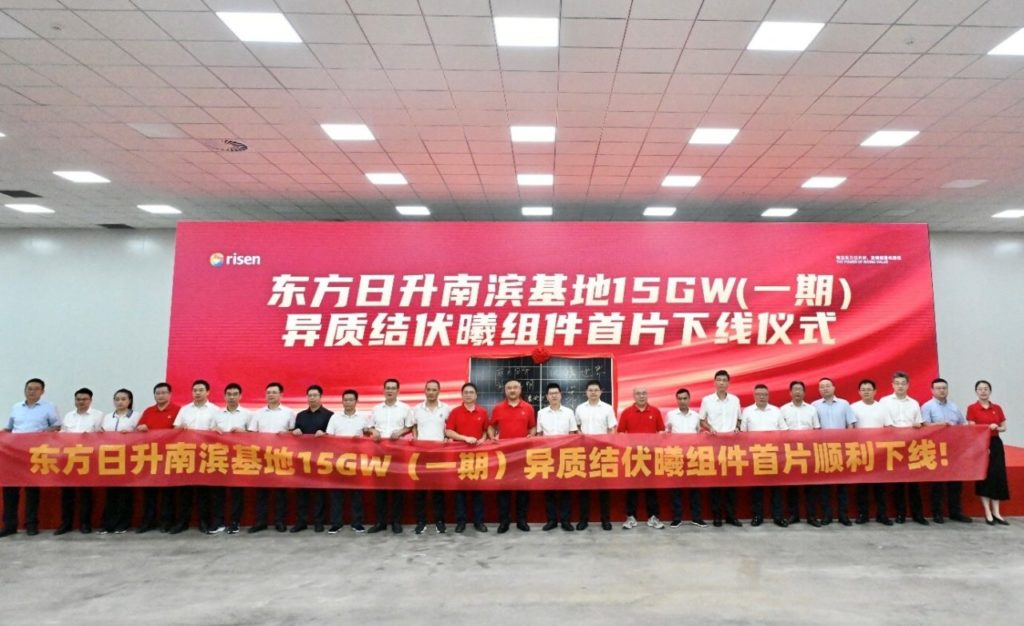
Solar Module Super League member Risen Energy has started commercial production of its Hyper-ion heterojunction technology (HJT) solar modules, which boast a conversion efficiency of 23.89%.
The company produced the first of the n-type HJT modules on Friday at its Nanbin manufacturing base in the city of Ningbo, China, at an event attended by company executives and government officials. The module’s maximum power output of 741.5Wp, and its efficiency rating, are records for the company’s HJT modules, and Risen expects the modules to be particularly durable, expecting their power output to fall to just 90% after 30 years.
Try Premium for just $1
- Full premium access for the first month at only $1
- Converts to an annual rate after 30 days unless cancelled
- Cancel anytime during the trial period
Premium Benefits
- Expert industry analysis and interviews
- Digital access to PV Tech Power journal
- Exclusive event discounts
Or get the full Premium subscription right away
Or continue reading this article for free
Risen first announced the module in February of this year, and the scale-up of production is a significant milestone for the company. It has already announced plans to increase its production capacity of the Hyper-ion modules to 15GW by the end of this year, following a US$7 billion investment into new manufacturing capacity made in January 2022.
“The official operation of the Nanbin manufacturing base not only gives Risen Energy another competitive edge but also holds pivotal importance in fuelling Ninghai’s resources for developing intelligent manufacturing,” said Wu Xuegang, president and member of the executive board of Risen.
“We will focus on ramping up the production of high-efficiency modules as we continue to strengthen the solar value chain in Nanhai to achieve greater industry synergy, helping the region establish itself as a PV and energy storage powerhouse.”
Risen’s Hyper-ion modules also use technological innovations, such as surface contact passivation, to optimise efficiency in electricity production. There has been considerable investment in new technologies in the solar sector in recent months, including LONGi’s unveiling of a solar cell with a conversion efficiency of 33.5%, but implementing meaningful change to the solar sector will rely upon implementing these innovations on a large scale.
As a result, Risen’s success production of its Hyper-ion modules, and the company’s plans to further scale up operations, could be an important proof of concept for processes such as surface contact passivation in the solar sector.


